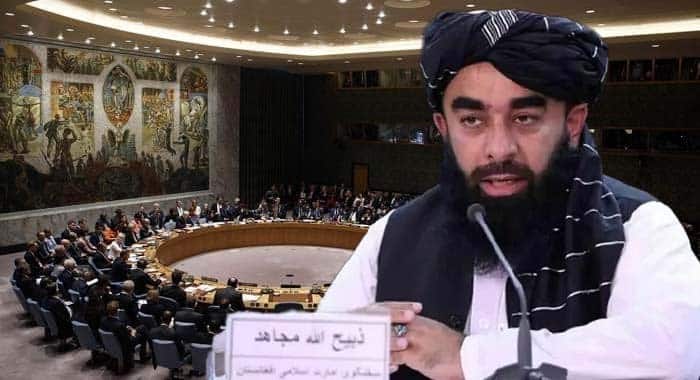The Taliban have firmly rejected recent concerns raised by the UN Security Council regarding the presence of terrorist groups in Afghanistan, insisting that no such organisations are operating within the country.
In a statement on Friday, Zabihullah Mujahid, the Taliban spokesperson, dismissed the claims, calling them baseless. He specifically denied the existence of the Islamic State (ISIS) in Afghanistan, asserting that the group had been “suppressed and destroyed” by the Taliban forces.
This response came shortly after the Taliban claimed to have thwarted planned ISIS attacks in Kabul and Nangarhar provinces earlier this month. Mujahid reiterated that Afghan soil is not being used as a launchpad for attacks against any other nation and urged countries to refrain from linking their internal issues to Afghanistan. While his remarks seemed to subtly target Pakistan, he did not explicitly name the neighboring country.
The Taliban’s statement follows warnings from Pakistan’s UN Ambassador Asim Iftikhar Ahmad, who highlighted that Afghanistan-based militant groups, especially the Tehreek-e-Taliban Pakistan (TTP), represent a significant threat to Pakistan’s security and the stability of the region. Ahmad cautioned that the TTP, with its estimated 6,000 fighters, poses an immediate danger.
The UN Security Council meeting also saw strong concerns raised by Vladimir Voronkov, the UN’s Counter-Terrorism Chief, who described ISIS as one of the most dangerous regional threats. Voronkov specifically mentioned the group’s use of cryptocurrencies and encrypted communications for operations. Natalia Gherman, head of the UN Counter-Terrorism Committee Executive Directorate, added that ISIS-Khorasan (ISIS-K) remains active in Afghanistan and is recruiting members from Central Asia and Europe while raising funds through online propaganda.
These concerns are echoed by several regional powers. During a recent visit to Kabul, China’s foreign minister urged the Taliban to address Beijing’s security concerns, while Russia and Central Asian nations have also raised alarms about the reported presence of foreign terrorist organisations in Afghanistan.
Despite these warnings, the Taliban continues to insist that they are in control of the situation, emphasising that their efforts to combat extremism within Afghanistan are yielding results





